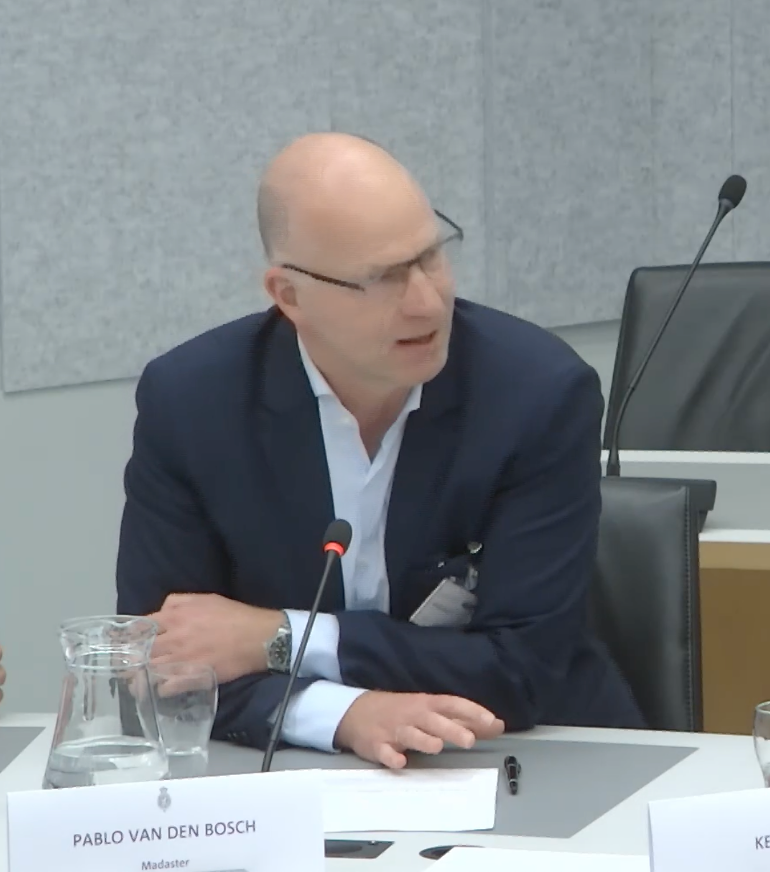MADASTER CIRCULARITY SCORE PROVIDES MARKET TRANSPARENCY
Registration and documentation of real estate objects forms the first essential step towards circularity, to gain an up-to-date insight into the material, circular and financial value of those objects. This enables real estate owners and caretakers to make smart choices and provides focus for their management efforts. Very useful for new construction as well as demolition, but certainly also when it comes to making existing real estate more sustainable. Here, Madaster’s Circularity Indicator (Madaster CI) plays a major role. The Madaster CI scores the degree of circularity of real estate, based on the materials used (new versus reused), the lifespan and the waste disposal scenario for all the elements of a particular property. But what does it mean when a property has a high circular value and what are the advantages for owners and caretakers? We asked Ron van Ommeren, founder of the specialised knowledge centre on circular waste management facilities, Modulo Milieustraten (90% circularity score), and Henny van Benthem, founder of building company Sustainable Constructions (circulariteitsscore 70%).
WHY IS THE SUSTAINABLE ASPECT OF REAL ESTATE SO IMPORTANT IN YOUR ORGANISATION?
Modulo Milieustraten and Sustainable Constructions both refer to the limited supply of materials and resources as an important reason for designing sustainable business processes. Van Ommeren: ‘It is important that waste is reduced to the absolute minimum and that materials are used as efficiently as possible.’ Van Benthem adds, ‘In my experience, redesigning business processes doesn’t have to be more expensive or arduous at all. Solutions are often found rather quickly and this translates into satisfied customers and a good feeling among the staff.’
HOW DOES THIS MANIFEST ITSELF?
In 2008, Modulo Milieustraten started designing modular, flexible waste management facilities. An exciting decision, as the only facilities available at the time were fixed, permanent constructions. Van Ommeren: ‘A Modulo waste management facility is constructed from standardised, modular elements made of eco-granulated concrete. These have a lifespan of at least 50 years and can be reused several times without any loss of quality.’ A smart choice of material, because it leads to a considerable saving in demolition and new construction costs and to a substantial amount of avoided CO2 emissions. And just when you think it could not get any more sustainable, Van Ommeren surprises us: ‘We are starting a trade-in guarantee. This means that if, at a future time, waste management facilities need to be adjusted or moved to another location, any surplus modules can be returned or exchanged for different ones. These modules then enter a pool of reusable modules from where they become available for reuse by other municipalities or companies.’
Sustainable Constructions have developed their own circular product. In 2015, for example, they designed clever construction elements that not only optimise the construction process but also save the environment. Van Benthem: ‘The elements are very light-weight and therefore easy to work with; they are also very solid, because they are enclosed within a beam construction.
The amount of pressure on the foundation is minimal, and no concrete needs to be put into the ground — so there are no issues with nitrogen. In addition, the solid mass of the elements provides high insulation value. Moreover, the buildings do not necessarily need to be assembled by professionals, which may be a considerable cost saving for the owners.’ In the meantime, the first homes consisting of these light-weight elements have been erected, and we have since received various applications from municipalities and others.
IS THE CIRCULARITY SCORE AN IMPORTANT POLICY TOOL IN YOUR ORGANISATION?
Van Benthem says the circularity score is an important tool for making policy decisions: ‘It provides us with focus for every new step we take; we are continually looking for refinement, and this way of thinking has also become instilled in our staff.’ This has a positive effect on our customer base, too, which can be seen in Sustainable Constructions’ collaboration with the strong technical education programmes at VMBO schools (i.e. schools for preparatory secondary vocational education). Van Benthem continues: ‘We have eagerly responded to the interest in our approach; we are building houses together with the pupils at VMBO schools. The government support for this development is great, as circularity in this way truly becomes part of both education and the business community.’
The circularity score also creates transparency in the market. Van Ommeren explains: ‘We want to show the viability of circular construction methods in waste management facilities — something that we have been saying for years but only now are able to really prove, thanks to the Madaster circularity score. This burden of proof is important not only to us, but certainly also to our clients.’
ALL OF YOUR CHOICES HAVE RESULTED IN REAL ESTATE WITH A HIGH CIRCULARITY VALUE. WHAT DOES THIS MEAN FOR YOUR ORGANISATION?
Both Van Ommeren and Van Benthem claim that ‘future-proofing’ is the biggest gain — for their clients as well as their respective companies. Van Ommeren: ‘A high circularity value can only be achieved if there are two winners: in our case, Modulo and the client. We are connected to each other. When we “build” we also “care”. When a project is completed, this is the beginning of a new long-term relationship between us and the client. Both parties have an equally large interest in their particular project having a long lifespan.’
According to Van Benthem, there is a lot of interest in circular products because the market also sees the advantages of a flexible and less laborious construction process: ‘The great amount of interest of all those involved is resulting in widespread acceptance, without there being much debate on the materials used. In our case, houses are cheap, easy to assemble and equally easy to disassemble and fully rebuild again, using the same materials. Expansion is also easier to achieve, and no trucks or cranes are needed. Customers feel good about that. Working with a circular product means working with a greatly appreciated product.’



